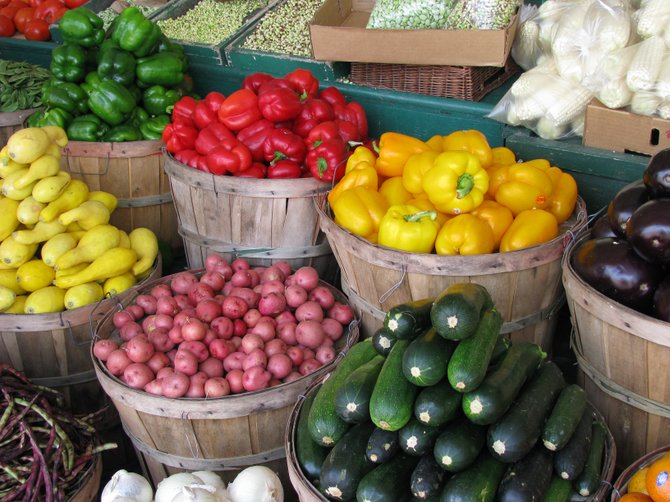Under a legislative proposal, areas that lack full-service supermarkets could see more fresh fruits and vegetables offered in those neighborhoods. Photo by Courtesy Flickr/Natalie Maynor
Supporters of a legislative proposal that promotes healthy eating believe the bill is an oasis for foods deserts--communities with limited access to grocery stores.
The Healthy Foods Retail Act (HB 798) authorizes the Mississippi Development Authority to make loans and grants to retailers, nonprofits, universities and government agencies that "increase access to fresh fruits and vegetables and other affordable food in underserved areas."
"The ultimate goal is to make the healthy choice the easy choice," said Rep. Toby Barker, R-Hattiesburg, the bill's main sponsor.
Barker, who launched a business incubator in Hattiesburg, said small businesses often struggle to access capital. HB 798 could attract new grocers or help existing small businesses make improvements to expand their offerings of healthy foods, Barker said.
The Centers for Disease Control and Prevention, which supports legislation such as HB 798, says people tend to be healthier when they live close to supermarkets that offer a variety of healthy foods. The CDC also says low-income, rural and minority communities are least likely to have grocery stores.
"For residents in these areas, convenience stores and other small grocery or corner stores may be more common than supermarkets," states the CDC's state-by-state overview of healthy foods legislation.
Forest Thigpen, president of the conservative think tank Mississippi Center for Public Policy, is dubious about the food desert concept and the role of a potential corporate beneficiary of the legislation, Walmart.
"We must question whether a $250-billion company should be getting help from Mississippi taxpayers," Thigpen said. "Government shouldn't be picking winners and losers. It distorts the market and tends to invite inefficiency because (subsidized) companies don't have to compete."
In 2012, Walmart had revenues of $447 billion and profits of $15.7 billion. In the recent years, part of the company's growth was fueled by the expansion of its scaled-down community grocery stores known as Walmart Neighborhood Markets. While Walmart Supercenters average 182,000 square feet, neighborhood markets average approximately 38,000 square feet in size.
Bill Simon, Walmart's president and chief executive officer, told an investors' conference in early March that the company plans to open 115 neighborhood markets nationwide, which are designed to compete with dollar stores, drug stores and supermarkets, by the end of 2013. By 2016, the company wants to open 500 such stores, Simon said.
Walmart, which has moved into spaces vacated by Circuit City electronics stores in other cities, is also rumored to be eyeing the capital city for its neighborhood markets. Walmart officials declined to discuss any plans for Jackson, but the company has two registered lobbyists, Steven Phillip Browning and Tice White, records from the Mississippi Secretary of State records show.
Barker refutes the claim that his bill would be a windfall for Walmart and other national chains, but asserts that among those to benefit would be small businesses and entrepreneurs in rural communities where the presence of Walmart Supercenters, he said, have created food deserts.
Beneta Burt, executive director of the Mississippi Roadmap to Health Equity in Jackson, does not believe that the Healthy Foods Retail Act would hurt existing businesses because many parts of Jackson could still benefit from expanded healthy-food offerings.
As an example, she cites the Jackson Medical Mall neighborhood where her organization started a three-day-a-week farmers market in 2009. The following year, a Save-a-Lot grocery store opened as the only supermarket in the neighborhood.
Both Burt and Barker agree that just opening new grocery stores or simply stocking more vegetables on the shelves alone will not make people healthier. Burt's organization has a fitness center, offers cooking classes for families and educates students about nutrition issues through its Food Corps program.
"There is no guarantee," Barker said. "But if you partner this with farm-to-school (programs), which educate children on the benefits of fresh fruits and vegetables, there's a synergy that can happen."
Comment at www.jfp.ms. Email R.L. Nave at [email protected].



Comments
Use the comment form below to begin a discussion about this content.
comments powered by Disqus